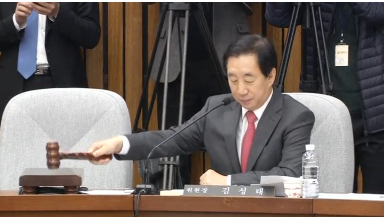
SEOUL, South Korea (Reuters) — South Korean National Assembly’s special committee, made up of opposition politicians and ruling party members, began investigations into the influence-peddling scandal surrounding President Park Geun-hye on Wednesday (November 30).
The committee is set to probe various government departments accused of bending under the influence of Park and her friend, Choi Soon-sil, who has been requested to attend a hearing on December 7, the parliament said.
Heads of South Korea’s major companies including Vice Chairman of Samsung Electronics, Jay Y. Lee, and Chairman of Hyundai Motor Chung Mong-koo, were selected as witnesses and requested to attend a parliament hearing on December 6.
The leaders of the three opposition parties, which together hold 165 of the single-chamber parliament’s 300 seats and can initiate a motion to impeach the president, said they would not be negotiating with Park’s party over her proposal to step down.
“The one and only solution left is an impeachment according to constitution,” the head of the Democratic Party, Choo Mi-ae said at a separate meeting with the leaders of two other opposition parties on Wednesday.
The leader of the People’s Party, Park Jie-won, said at the meeting a motion would be put to a vote on Friday or on December 9 if needed, adding: “Impeachment is the only way.”
The opposition needs a minimum of 28 votes from the Saenuri to pass the impeachment bill, which will immediately suspend Park’s powers while the Constitutional Court takes up to six months to decide the validity of the motion.
Park on Tuesday (November 29) asked parliament to decide how and when she can give up power over an influence-peddling scandal, taking the country’s political crisis deeper into uncharted terrain.
Her dramatic manoeuvre puts the burden of resolving the political crisis on parliament, which has been controlled by a coalition of opposition parties since Park’s conservative Saenuri Party unexpectedly lost its majority in April elections.







